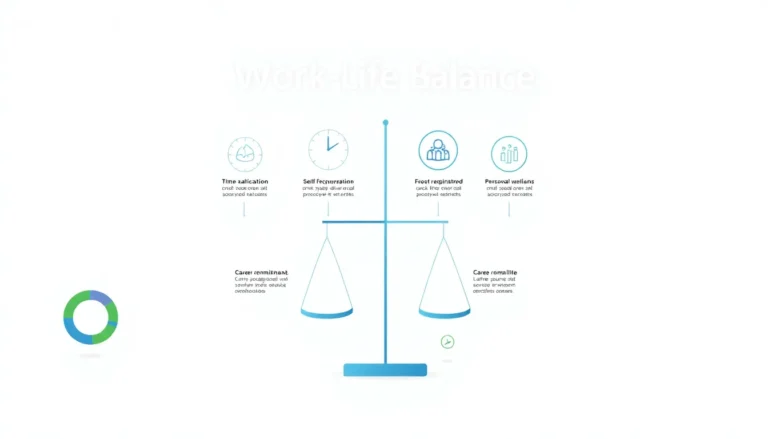Table of Contents
ToggleWhen you think of the CIA, you probably picture shadowy figures in dark suits orchestrating international intrigue. But let’s not forget one crucial aspect behind those missions: effective communication. Understanding languages can be the difference between a successful intelligence operation and a diplomatic fiasco. So, if you’ve ever wondered why the CIA prioritizes language skills, you’re in for a treat. Grab your favorite cup of coffee, sit back, and let’s jump into the world of CIA language learning, where linguistic prowess meets intrigue and skill.
Understanding the Importance of Language Skills in Intelligence

In the intricate world of intelligence, language skills serve as vital tools. For operatives and analysts alike, the ability to speak and understand multiple languages enables deeper insights into cultures and operations. Language becomes not just a means of communication, but a lens through which one can view the world from diverse perspectives.
For example, consider an operative working in a region where multiple dialects exist. Without proficiency in these languages, critical information may slip through the cracks. Operating in a country requires not simply the ability to translate words, but to understand idioms, colloquialisms, and cultural nuances that inform behavior. Take it from seasoned analysts: misunderstandings due to language barriers can lead to incorrect assessments and potentially dangerous situations. So, language skills aren’t just nice to have: they’re essential for well-informed choice-making.
Also, successful intelligence gathering involves a degree of trust. Building rapport with sources hinges on effective communication, which can be facilitated by speaking the local language. This not only enhances the credibility of the operative but fosters relationships that yield valuable information.
The CIA’s Approach to Language Training
The Central Intelligence Agency adopts a comprehensive approach to language training aimed at enhancing its personnel’s capabilities. This structured methodology ensures that agents are equipped with the skills necessary to navigate complex environments.
Key Language Learning Techniques Used by the CIA
One essential technique used by the CIA is immersion training, where personnel engage in intense language practice through real-life scenarios. This method forces learners to use the language in context, helping them grasp not just vocabulary but also the emotional undertones that can be critical in negotiations. Beyond that, continuous assessment enables recruiters to tailor training to the individual’s progress, ensuring no one gets left behind in dusty textbooks.
The agency also emphasizes grammar foundations, recognizing that without a solid grasp of structure, even the most avid learners may struggle to convey their thoughts effectively. Incorporating diverse teaching resources helps enrich this learning process, drawing from everything from films to news articles.
Immersive Learning and Cultural Competency
Language doesn’t exist in a vacuum, and the CIA gets it. Cultural competency is intertwined with language learning, and it is crucial for operatives to engage with the cultures they interact with. Understanding social norms, traditions, and even humor can mean the difference between rapport-building and outright offense. The CIA promotes cultural training alongside language studies, allowing agents to experience immersive learning that deepens their appreciation and understanding of the regional context. They might find themselves navigating local markets, participating in cultural festivals, or even dining with locals, opportunities that boost both language skills and cultural intelligence.
Technology and Language Learning Resources
In modern digital era, technology plays a formidable role in language acquisition. The CIA also taps into this modern treasure trove, utilizing various resources to enhance learning experiences.
Building a Personalized Language Learning Plan
Language skills vary from person to person, so a one-size-fits-all approach simply won’t work. The CIA encourages agents to establish personalized language learning plans that’s tailored to their objectives and learning pace. This might involve setting specific goals, such as mastering conversational ability within six months or achieving fluency in reading intelligence reports.
Also, leveraging language learning apps and tailored online courses allows individuals to fit their studies around their schedules. Programs that integrate listening, speaking, reading, and writing across multiple contexts can lead to more holistic proficiency.
Tips for Self-Directed Language Acquisition
Self-motivation is key. Learning a language independently can be akin to trying to hit a moving target, but with the right strategies, success is achievable. Start by immersing yourself in the language. Yes, streaming shows or listening to music in your target language might sound cliché, but they actually work. They expose you to how the language flows naturally.
Participating in language exchange and conversation clubs can also add a fun social aspect to your learning. Seek out native speakers who are eager to share their knowledge while you practice your skills: it could also lead to lifelong friendships. Combine these tactics with regular practice, and soon you’ll find yourself picking up nuances you never thought possible.







